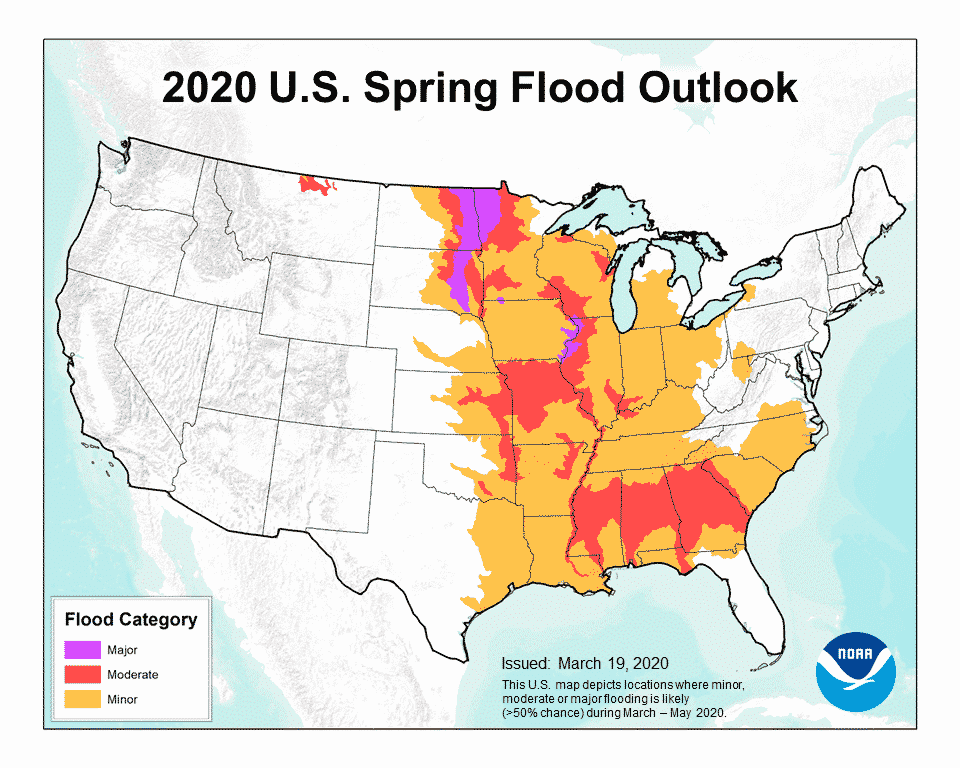Every year, our partners at American Rivers release their list of the ten most endangered rivers in the United States. Like many years before, the Upper Mississippi River is included, but this time, it has found itself at number one. The reasons are two-fold. Climate change is driving intense precipitation events that lead to longer and more frequent flooding. Couple this with decades of poor floodplain development, and you have a river that is in dire need of attention and change. In this post, take a deep dive on the Upper Mississippi and climate change.
Changing Climate and the River
 The flooding in 2019 broke a lot of unfortunate records. The record breaking amount of water that flowed into the Mississippi River system was fueled by the wettest winter on record in the United States. In the Quad Cities, the Mississippi was at or above flood stage for 96 consecutive days. These types of events put significant strain on both the river and the many communities who find themselves in the path of these floods.
The flooding in 2019 broke a lot of unfortunate records. The record breaking amount of water that flowed into the Mississippi River system was fueled by the wettest winter on record in the United States. In the Quad Cities, the Mississippi was at or above flood stage for 96 consecutive days. These types of events put significant strain on both the river and the many communities who find themselves in the path of these floods.
With climate change accelerating, scientists believe these events could become our new normal. The National Oceanic and Atmospheric Administration predicts moderate to major flooding in 23 states throughout 2020. The Spring flooding outlook for much of the Mississippi River along Illinois is just as dire.

Take Action!
At Prairie Rivers Network, we believe in and advocate for many ways we can slow or halt the impact we have on Earth’s climate. We also believe in the need to adapt to existing changes so we can ensure the safety of people and the environment. That is why we’re calling on officials at the federal level and across Midwestern states to create a plan for the Mississippi basin that accounts for our changing climate.
This plan should prioritize reconnecting the Mississippi River with its floodplain, ensuring the system has the capacity to handle more water. This kind of step can ease the pressure that vulnerable communities feel from flood events, while subsequently restoring vital habitat for the river.
Use our Action Alert to send this important message to your members of Congress and to officials throughout the Midwest!







